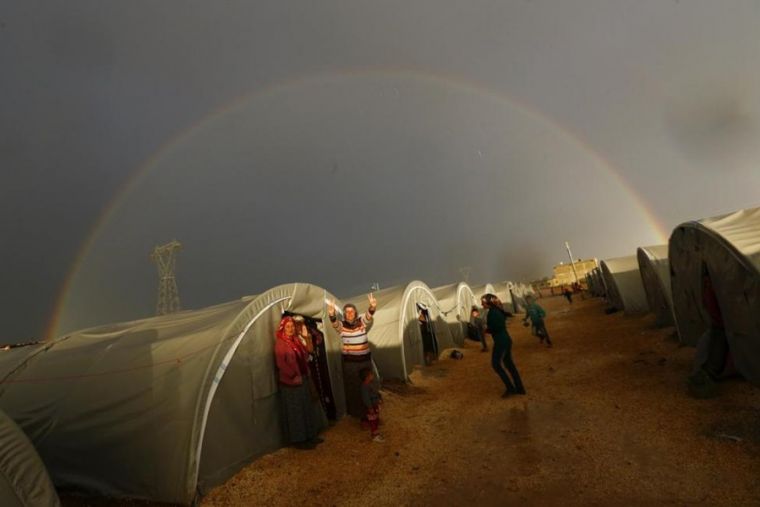'Muslims are just sick of Islam': More refugees in Iraq embracing Jesus Christ

More and more Muslim refugees in UN camps in Iraq are embracing Jesus Christ and expressing repugnance of their former religion, Christian Aid Mission workers have disclosed.
"They're just sick of Islam," a Christian ministry leader in the Kurdish Region of Iraq recently told the Christian Aid Mission.
"People are very hungry to know about Christ, especially when they hear about miracles, healing, mercy and love," he said, as reported in the Gospel Herald.
The ministry director, who declined to be identified for security reason, said the Muslims in their camp have witnessed the brutality of Islamic State (ISIS) militants carrying out beheadings and other horrific acts in the name of Allah.
The director said his ministry has been swamped with Iraqi Muslims seeking to know more about Christ and the Bible.
"As terrifying and horrifying as ISIS is, they did us a great favour because they came and have shown them all the killing, saying that it's all in the Quran verses. So now we don't have to say much, we just say the truth," the director.
The Kurdish Region of Iraq hosts some 900,000 refugees, around 233,000 from Syria and the rest from Iraq, based on UN figures issued in January this year.
The Christian ministry director said his organisation provides aid to displaced people living in tents and dilapidated or unfinished buildings inside the sprawling camp. Aside from shelter, the Muslim refugees are given food, blankets, heaters and even diapers for babies.
The Christian Aid Mission workers are also bringing copies of the Bible and distributing them to refugees who have expressed interest in knowing more about Jesus Christ and His teachings.
"We just help because we love them, and maybe the next time we visit we tell them about Jesus and give them Bibles," the ministry director said. "We believe in the power of the Word of God. We don't have many preachers. We don't have many missionaries, but we have the Word of God that we're able to print, purchase and deliver to the people and their children."
He said there has been a great Christian "awakening" among the Muslims in the region, adding that he has personally witnessed many such conversions.
He recalled one incident when a Muslim receiving aid from his ministry was given a Bible, at first reluctantly.
"He said, 'OK, but I'm Muslim, I can't become Christian—I have a big family, and my father is a very extremist radical,'" the director said. "I said, 'I didn't ask you to be Christian. I'm not trying to change your religion here. I just want you to read the Bible and know who Jesus Christ is. I want you to have a relationship with God.'"
The Muslim agreed, and he began reading the Bible together with his wife and their children.
After some time, the Muslim refugee came back to the ministry leader with a list of questions he had written while reading the Bible. It turned out that the Muslim did not know much about Muhammad, the prophet of Islam, and some of his questions were about who Muhammad really was.
The director was surprised to find a Muslim who doesn't know much about his own religion's founder.
The Christian Aid Mission said the director, who normally does not talk about Islam, then gave the Muslim refugee "a token bit of information about Muhammad that did not include anything offensive about the founder of the religion."
"I said, 'Why do you ask me that question?'" the director asked him later. "He goes, 'You know what? I don't like Muhammad anymore.' I was happy but surprised, so I said, 'What now?' He goes, 'I want to be a Christian.' I said, 'I thought you said you didn't want to be Christian before.' He goes, 'Oh, I changed my mind.' So he got saved."
The ministry director said this is just one of many incidents that show that the Word of God has the power to change lives for the better.











